Got a solid blogging strategy? I’m here to challenge it.
Don’t have one? Keep reading.
Developing the right blogging strategy – and optimizing it regularly – is essential.
Here’s why: You need a strategy for efficiency. But when the strategy overruns creativity, the value is lost.
If you’re consumed by looking for keyword synonyms, perfecting keyword placement, and choosing the optimal anchor text for internal links, your blog will turn into a word game (read: boring).
What you should be focusing on instead is user intent and providing valuable answers to the questions your audience is asking.
That’s where the beauty of quality SEO content comes in. When you do it right, everyone benefits – search engines, your target audience, and of course you.
What Makes or Breaks Your Blog?
Let’s start with the factors that are an absolute must for your blog SEO.
I call these blog busters because any one of them can make or break your blog.
Open up your to-do checklist.
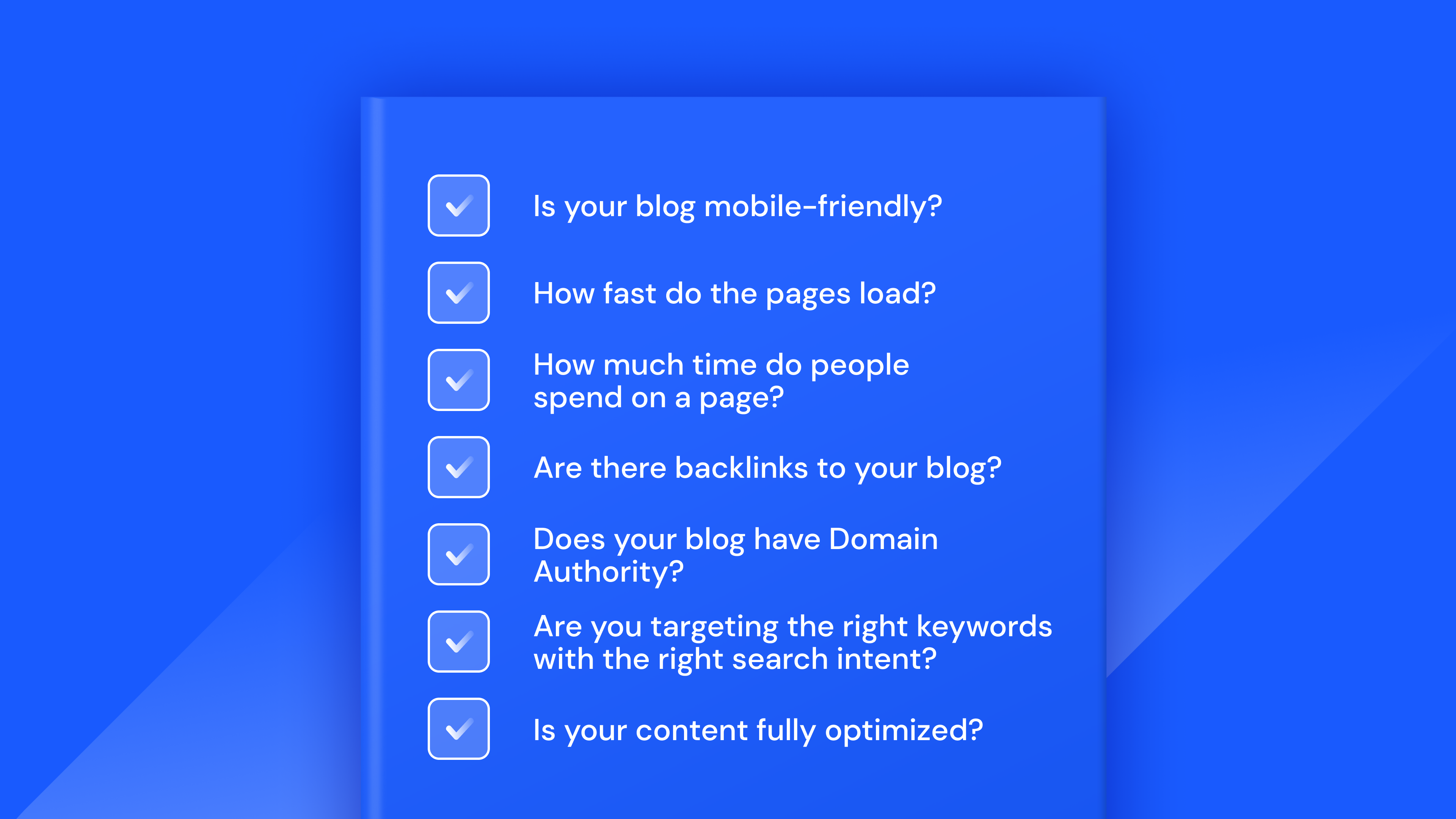
Blog Buster 1: Desktop-First, Mobile-Second
More than 50% of search traffic comes from mobile devices.
Blog readers expect mobile-responsive blogs, and Google knows that. That’s why being mobile-friendly is a ranking factor.
A blog should provide an exceptional user experience for readers on desktop and mobile – not one at the expense of the other.
It’s a perfect example of how pleasing readers and search engines go hand-in-hand.
Blog Buster 2: Slow Page Speed
Readers have short attention spans and if the page doesn’t load near-instantly, you can expect them to bounce.
Moving on to the next runner-up on the SERP is less frustrating than waiting.
Make sure your visual elements don’t slow down page speed.
Remove anything from the page that may interfere with loading such as unnecessary code, overused plugins, and other extra baggage.
Google knows if your page is slow and people are leaving right away. So load time is crucial for getting eyes on your article and climbing the SERP rankings.
Blog Buster 3: Prioritizing Content Length Over Quality
Very short blog posts are easy to read and may get a lot of views. But how much valuable information can you provide in 300 words?
It’ll always be little more than a teaser. (Fun fact: You’ve read over 400 words already.)
Longer posts will increase the value of your content if you deliver relevant insights.
Here’s a little secret trick (well, not so secret anymore): If you prefer short posts, create clusters of short articles around the same topic and interlink them.
Readers can easily move from post to post, and you kill three birds with one stone.
Blog Buster 4: Not Enough Quality Backlinks
Google wants to know who your friends are. I mean, they know just about everything, but you get the idea.
Creating an optimized blog goes beyond writing relevant, engaging, and informative content for your audience.
It requires promoting, networking, and distribution as part of the content marketing strategy.
To establish a loyal readership, you need to build trust.
Google is on the reader’s side, and backlinks are an important ranking factor. They are considered a kind of proof that you are a recognized authority on a subject.
To rank well, you need established sites to vouch for you.
Blog Buster 5: Insufficient Domain Authority
Let’s stick with gaining the readers’ trust here.
How can a random searcher be sure whether you know what you’re talking about?
Before they trust you, they’ll trust Google. The search engine won’t send people to your page on skincare if your company sells computer accessories.
The question you need to ask is, what expertise can you offer to your audience?
Your blog content needs to streamline what your brand stands for.
If you are clear on that, authority is a logical consequence. The search engine recognizes your area of business based on the relevance of keywords to the URLs of your domain.
Blog Buster 6: Targeting the Wrong Keywords or Search Intent
Proper keyword research is still the holy grail.
Your keyword strategy is useless if you target the wrong terms. You need to identify the keywords your target audience uses to find what they need and effectively target them.
It means putting yourself in their shoes.
Evaluating search volume and keyword competitiveness won’t cut it.
Ask yourself, Why and what does your audience want to read and learn about?
How does search intent alter the way searchers use keywords?
What intent does your blog satisfy?
Which keywords drive the most traffic to your type of blog or website?
These are questions you want to answer for your blog as a whole and for the individual articles, as well.
There’s no time like the present. Take a look at the top keywords in the United States (i.e., what people are actually searching for) right now:
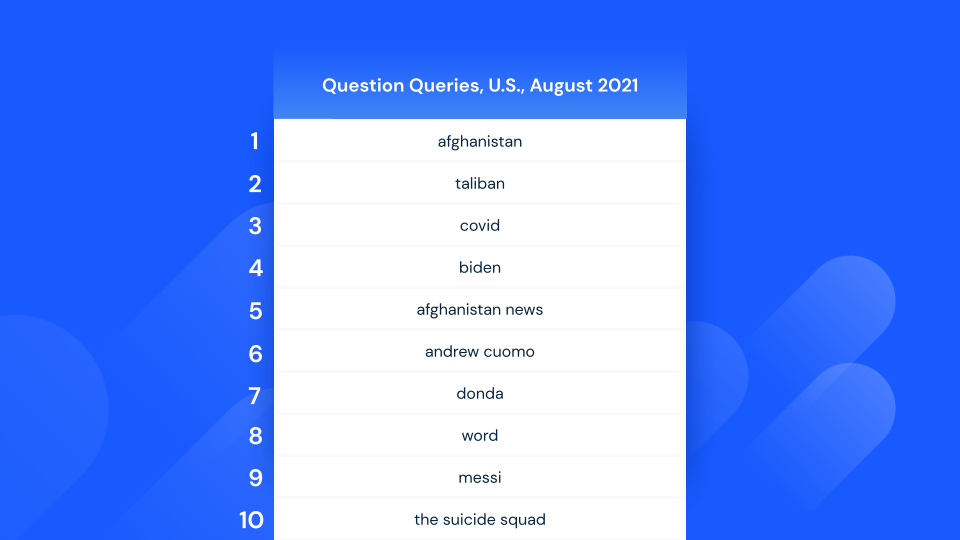
Blog Buster 7: Writing Without Optimizing
You need to think “optimization” before you even create the first bit of content… and never stop.
What do I mean by optimization? After all, there is SEO optimization, conversion optimization, image optimization, and simply optimizing your content to stay relevant.
Optimization is simply the process of making something optimal – higher quality, more effective, just better.
The bottom line though is you want to optimize your new and existing content to meet your goals. That likely includes all of the above, plus some more.
You’ll want to implement the focus keyword in your title and metadata.
Select secondary keywords that appear in H2s and incorporate them naturally throughout the text.
Create titles with a clear message that drives people to click and keep reading.
Add visuals that enhance the written content and optimize those images with the right keywords in the alt texts.
Put some thought, and research, into your CTAs. Make them interesting and most importantly clear.
If you have old content that is losing relevance, you can update it in keeping with on-page SEO best practices and see powerful results with a lighter lift.
Top 10 Tips to Improve Your Blog SEO
If I had to choose a single SEO tip, this would be it: Treat your blog as a central pillar in your digital marketing strategy.
We used to think of blogging as extra content that isn’t essential. Those days are over. And so are the days when blogging was merely writing freely about an interesting topic.
1. Put People First – Define Your Audience
This is one piece of critical advice every SEO pro will give you.
Many blog managers assume they know their audience but never analyze how close to reality their assumptions are.
If you want to get (and keep) your blog a step ahead of your competitors and improve your audience targeting, go the extra mile and analyze your actual audience vs. your target audience.
This is a critical part of our SEO strategy, and we use our audience analysis tool to identify demographics, interests, and behavior.
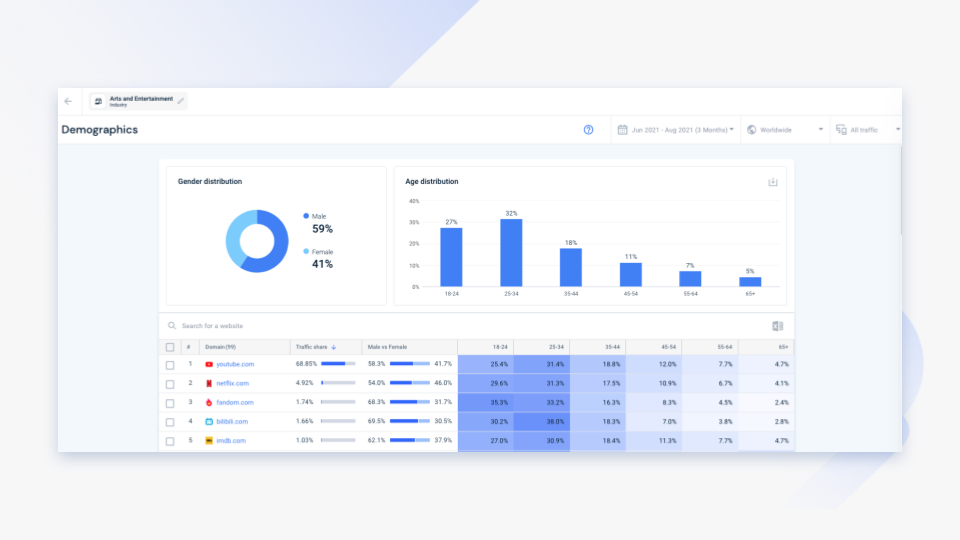
See what your web analytics software offers, collect and track data about your blog audience.
You may not make mind-blowing discoveries, but you’ll fine-tune your SEO strategy to generate more qualified traffic and reach more relevant readers.
2. Put in the Work – Do Your Keyword Research
No matter how you turn it, keyword research is your foundation.
Research in Context
The most sophisticated SEO strategy can’t generate results unless it’s built on the right keywords, which is why I believe in addressing keyword research (or any other research) in the context of the market landscape.
Investigate the search volume for keywords, but also reverse the angle.
How? By starting with the destination, not the term.
The idea is to reveal which keywords drive the most traffic to sites similar to yours.
It helps pinpoint user intent and identify relevant audiences.
Research Performance
Research how keywords perform and to what type of content they drive traffic.
When you see your chosen keyword generates traffic to sites that answer entirely different issues, reconsider.
Research Relevant, Current, Accurate Data
The abundance of data that’s available on the web can be overwhelming. What metrics are most relevant? How come different analytics tools provide conflicting info?
It’s because each has its unique definition and measurement method. What’s best for you depends on your type of business and business goals.
But one thing is increasingly important for all blogs and websites: Research with real-time data.
Averages from past months aren’t indicative of what’s working today. Keyword performance and rankings change quickly. You want to identify the most promising trends so you can create new content and optimize existing content.
Pro tip: Identify whether your target keywords are driving organic traffic or generate mainly paid traffic. This helps you laser-focus on the most relevant terms and avoid losing traffic to ads.
3. Mind the Details – Polish Meta Description and Alt Text
Your closest competitors are likely targeting the same keywords.
Searchers get SERPs full of similar page titles. When that happens, your potential reader turns to the meta descriptions – those 160 characters summarizing your blog content – to determine whether the article answers their query.
Clarity is a catalyst here. Be precise about what they will gain from reading your blog.
Make sure the meta description is compelling and highlights the benefit for your target audience.
Now, Google may rewrite the search snippet. But if you’ve given them a quality meta description there’s a better chance they’ll use it.
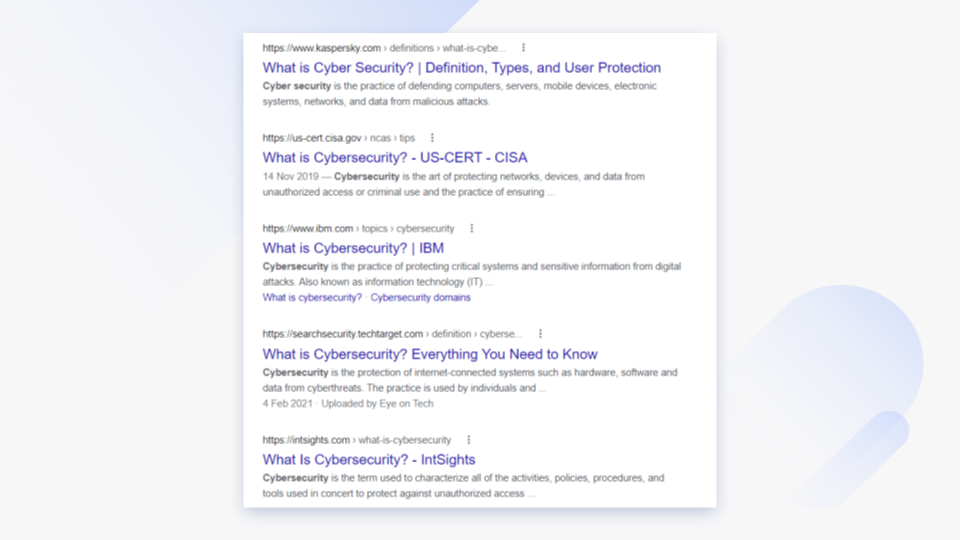
Google’s algorithms can’t decipher what’s in an image. It’s up to you to tell the search engine.
Alt text is also an important accessibility aid that may be read aloud to the visitor, so it needs to be descriptive and make sense.
Do it in a smart way that includes keywords and explains what’s actually in the image.
4. Hand-Pick Your Team – Hire the Right People
They’re your most important resource: Your content creators, managers, and SEO professionals.
Find people who know their stuff and want to create amazing content. Build a team of enthusiastic professionals who put in the work and mind the details.
That includes content creators, such as writers and designers.
They, too, need a solid grip on SEO best practices. Invest in training your top content talent in SEO; it’s a win-win.
5. Stay in the Know – Keep Everyone Updated on SEO
Search engines like to keep us on our toes.
Just when you get used to something that works well for your blog’s SEO, that’s when it changes.
Your team needs a natural curiosity to stay on top of things and you can help them with that.
Support them with resources and training.
Encourage them to find best practices, tips, and guidance that will advance the entire SEO operation for your blog.
Create a culture of sharing these insights and new industry updates.
6. Take a Holistic Approach – View Your Blog as a Whole
Don’t look at individual posts separately. Each article is part of a bigger SEO story – and company story, for that matter.
You know your market and what your audience seeks; now divide it into topic categories for your blog.
Identify top keywords for each topic to guide content creation. Your blog should cover a wide range of specific questions around a central topic.
Interlink posts to help search engines identify connections and make it easy for the reader to find additional information.
7. Get Organized – Create a Structure Using Pillar and Topic Clusters
Categorize and list the relevant keywords for your blog.
The main keyword or search query for a topic is your pillar. Each related or long-tail keyword is the basis for an article, creating a cluster around the pillar piece.
Let’s look at an example: You’re in cybersecurity. One top search query is [what cybersecurity means] and another is [why cybersecurity is important].
You’ll write a comprehensive but general article about each.
Now, dig into related and long-tail keywords. For example, [how to explain cybersecurity] or [what cybersecurity means for fintech companies]. Create content around each one. Keep adding long-tail keywords and creating articles.
Your blog will branch out into different directions without ever diverting from the central topic.
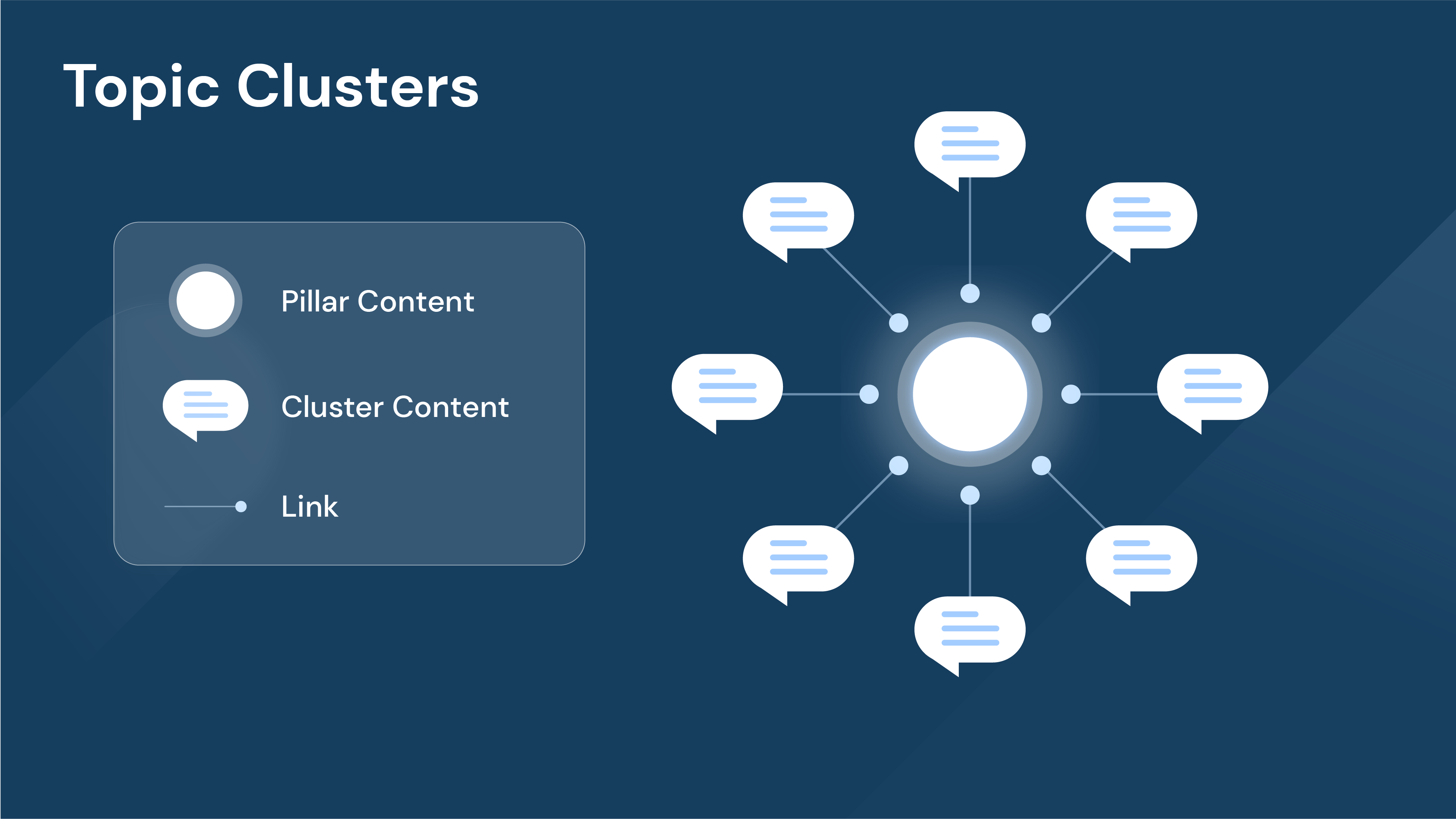
Do you see how this benefits the SEO position for the entire blog?
You can write multiple articles around the topic using keyword clusters, where each cluster targets a specific long-tail keyword.
You provide a broad range of valuable information and also prevent posts from competing against each other.
Use a planner like we do to keep track. Trust me, it can get confusing.
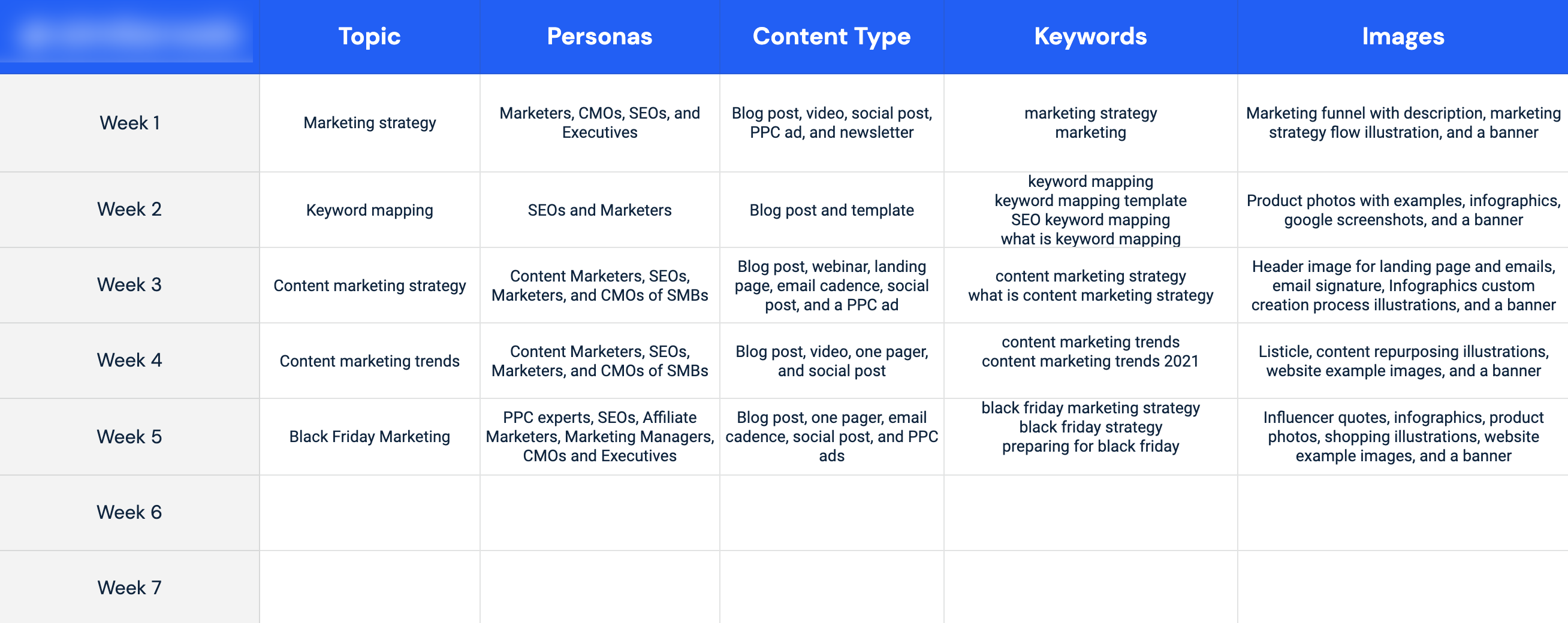
8. Remain Relevant – Make Each Piece Valuable to Your Target Audience
The proposed structure allows you to provide relevant content for a broader audience.
How so? Don’t target everyone with every post.
A post should be relevant to one specified search query. As you add on additional articles, you’ll cover additional related questions and be hyper-relevant for more and more searchers.
Be clear about which specific question each post answers and mention the specific keyword in the title and description.
9. Can’t Stop, Won’t Stop – Always Keep Optimizing
The only thing that’s consistent in SEO, just like in life, is change.
Search engines dictate the algorithms, audiences create trends, and competitors challenge your position. You never know what will change next.
Here are some tips to help:
- Continue measuring results and adapt your content frequently.
- Update posts that perform well with current information.
- Remove posts that don’t get read.
- Repurpose articles or other content, turn webinars into blog posts, etc.
- Identify new trends and create compelling new content.
- Test titles and images and see what ramps up your ranking or the readers’ interest.
10. Aim for the Top – Go for Featured Snippets
Featured snippets are what Google considers the best answer for a specific search query.
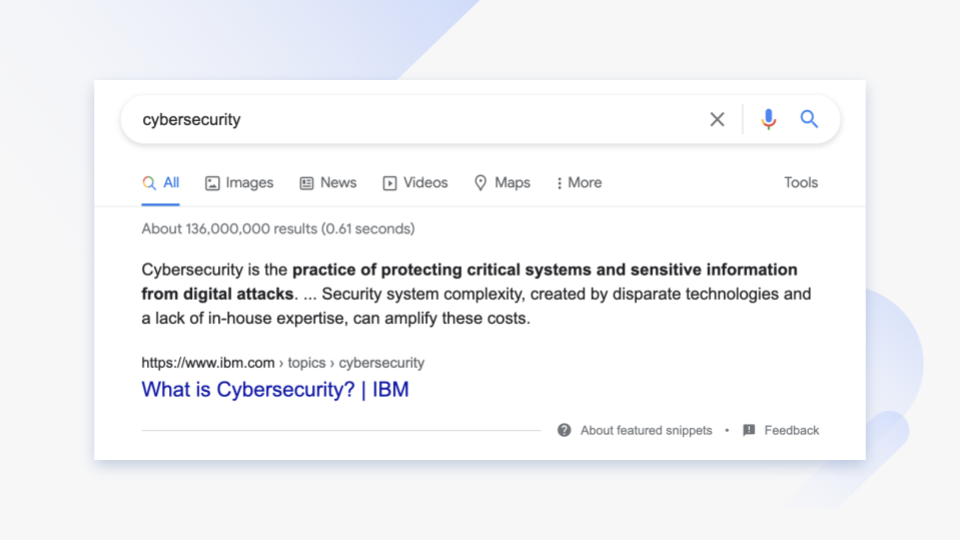
If you figure out how to answer the questions people search for, your content has a higher chance of being featured. If that happens, you made it.
But always keep optimizing to keep that top spot secure.
Closing Thoughts on Blog Strategy
Your blog can be a nice extra for your customers to get to know you. Or it can be a powerful SEO tool and exceptional learning portal all in one.
It’s up to you. If you chose the latter – and I hope you do – go all in. Your blog SEO is just like an ongoing marketing campaign that you plan, implement and measure.
If, at first, the outcome doesn’t seem worth the effort, don’t get discouraged. It takes time to grow, but when it does, you’ll get long-term results and can then pop the bubbly.
The tips above will help you nurture your blog’s growth around a solid SEO framework, but the work is all you.
So get to it! Reference this article if you hit snags along the way.
More Resources:
- 7 Ways Businesses Benefit from Blogging
- 5 Blogging Tips to Help Boost Your Content Now
- Your Guide to Google E-A-T & SEO
Featured image: BestForBest/Shutterstock
Article images: Yael Klass/SimilarWeb


